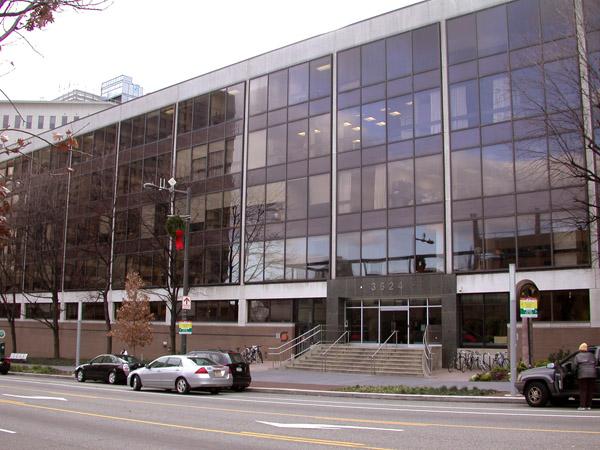How Penn’s upper class can change their ways
Photo credit: Design by Lexi Boccuzzi / Logos from Wikipedia
By Chloe Hunt
Penn is pricey. Not just our tuition, but also, our lifestyles. This spring, social calendars are chock-full. Mardi Gras! Valentines! Saint Paddy’s! Spring Fling! Sink or Swim! If you are a people-person at our “work hard, play hard” institution, you could drop hundreds of dollars on any given weekend. Many at Penn take this for granted, no doubt due to our student body being one of the wealthiest in America.
Even if you don’t like to go out, your weekend can still drain your bank account. Maybe you and your friends go out to eat in one of the most expensive food cities in America. You might take the bus to New York, go to a Philly sports game, or hit a local coffee shop. Each microtransaction, and big transaction, adds up. Or, if you’re a little more economically savvy and frugal, you might find yourself eating at the dining hall, where the weekend hours are upsettingly limited. Certainly, the average Penn weekday is filled with expenses as well. Your friend’s acapella show, the quick lunch from Franklin’s Table between classes because you only had fifteen minutes, the hecklers on Locust making you feel bad for not buying a brownie from their bake sale because as the student tabling reminds you, “It goes to charity! Come on!”
The Penn lifestyle definitely takes a financial toll, a burden that primarily falls upon the middle and lower classes. As a member of Penn’s elite, there should exist an obligation to be more thoughtful about the way you spend your money, especially since our campus does not reflect the majority of the world in any way. Getting outside of Penn’s bubble means financial consciousness.
According to The New York Times, the median income of a Penn student is 195,000 dollars, with over 70% of the student body hailing from the top 20%. In fact, Penn has one of the highest percentages of students from the top income thresholds in the Ivy League, with 45% of these students coming from the top 5% of US income earners. Penn’s student body largely hails from families far removed from the average American household.
Furthermore, basic human necessities—groceries, healthcare, medicine, shelter—are all more expensive in Philly compared to an average U.S. city. To just exist in the City of Brotherly Love, compared to most places in America, is pricey; and this is not even taking into consideration living here as a student with a limited budget.
Penn arguably does a good job of providing aid to those who need it. After all, the first line on Penn’s financial aid page boasts their ability to meet “100% of demonstrated financial need.” While this may be true, it does not account for the social norms that flood campus life. Even if your tuition is paid for and you have a job, you still could feel the pressure of asking for money—whether it’s for clubs, friends, or Greek life. Penn pushes students to live beyond their means. We’ve been thrusted into an environment where the “normal” spending habits are well-removed from America’s normal. Just look at what the Philadelphia Reddit page thinks about Penn.
During the spring 2022 semester, Wharton professor Nina Strohminger polled students in her class, to ask what they thought about the average U.S. income. She then tweeted, “I asked Wharton students what they thought the average American worker makes per year and 25% of them thought it was over six figures…” Yikes. “Y’all ok over there, UPenn?” The Reddit page is titled. The comments are filled with users thinking about where these perspectives came from. “It probably is the average [of people they know]…Bubbles are powerful,” one comment read. “These out-of-touch kids will be the business leaders of tomorrow…”, another said. My personal favorite said, “They’re going to be so thrilled to learn they can hire people at 30k.”

Even if this class poll was flawed and students were joking, I think it’s important for everyone to take a step back and reflect on their Penn bubble. We should be extremely grateful for the access that an institution like Penn offers us, while simultaneously being cognizant of how far-removed all of our new connections are from the rest of the country, and world. What does it mean to be at a campus with the kids who jet off to Santorini and the Maldives during breaks, who haven’t worked a minimum wage job, or who don’t go home having to pay for their gas?
As a student body, we need to evaluate, regularly, how Penn’s circles lead us to live. If you are part of the monetarily elite on campus, I encourage you to think about ways to live more humbly. Learn how to use Septa regularly, how to coupon, and how to budget. Explore Philly beyond University City and Center City. Try to get involved in the city, whether it be through volunteer work or other forms of community engagement. Think about your social circles and what you consider normal.
Penn is removed economically and socially from the greater Philadelphia orbit and America. If we are committed to educating the next generation of leaders, we need to cultivate students with a realistic view of the world.
Chloe Hunt is a junior in the College studying Creative Writing, Hispanic Studies, and Political Science from Roanoke, VA. Chloe is also a News Editor for The Pennsylvania Post. Her email is chloemwh@sas.upenn.edu.




